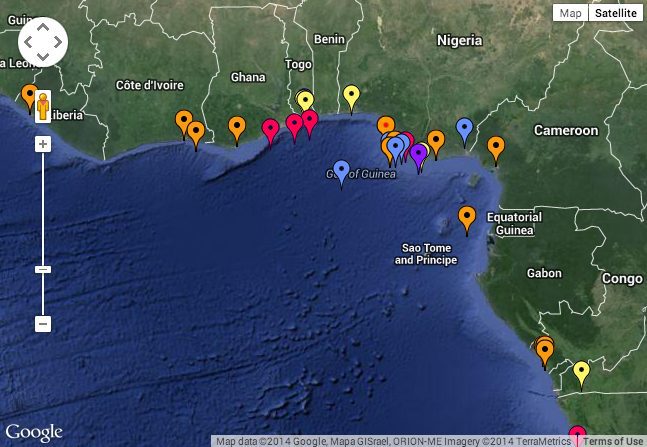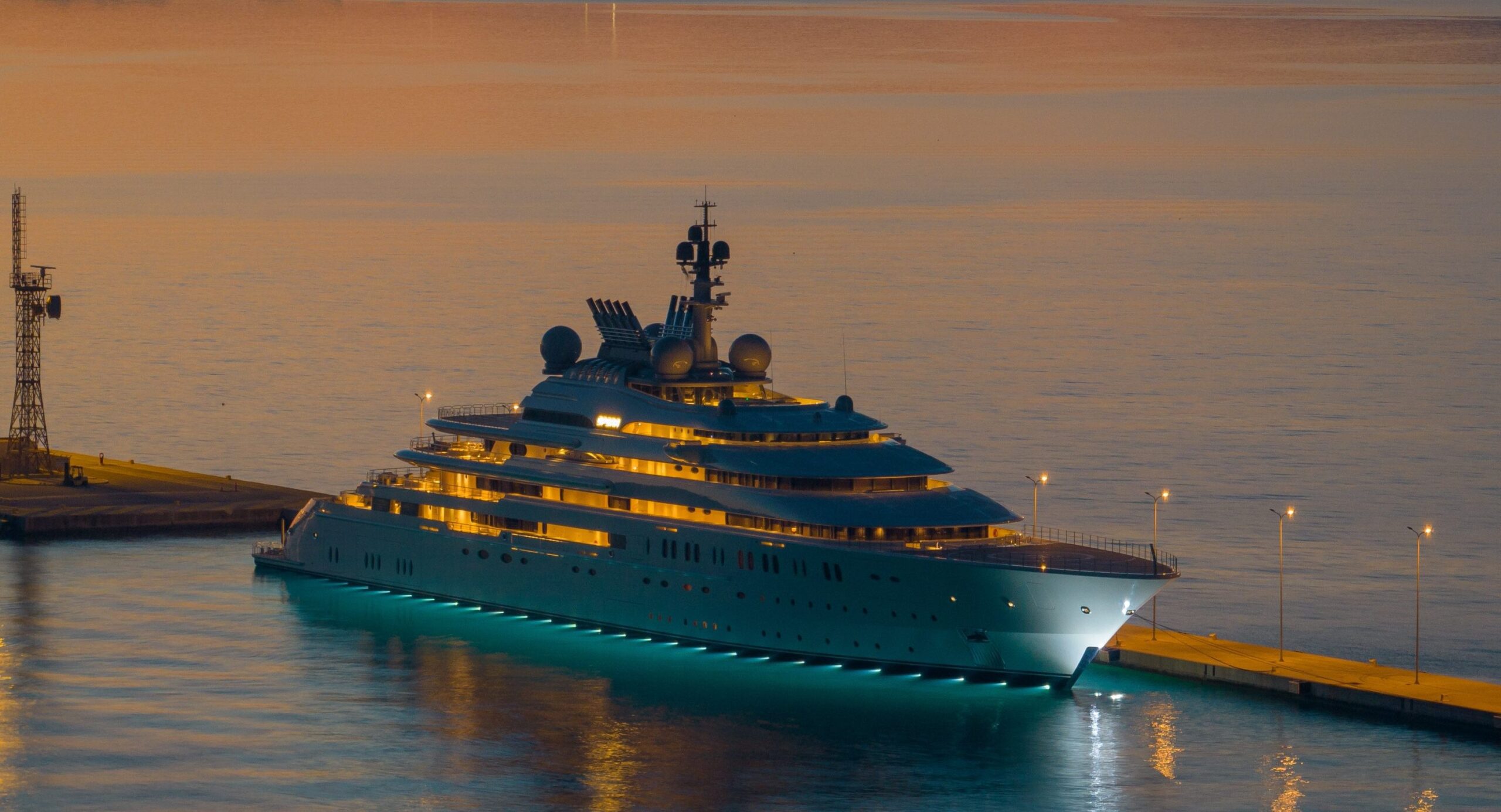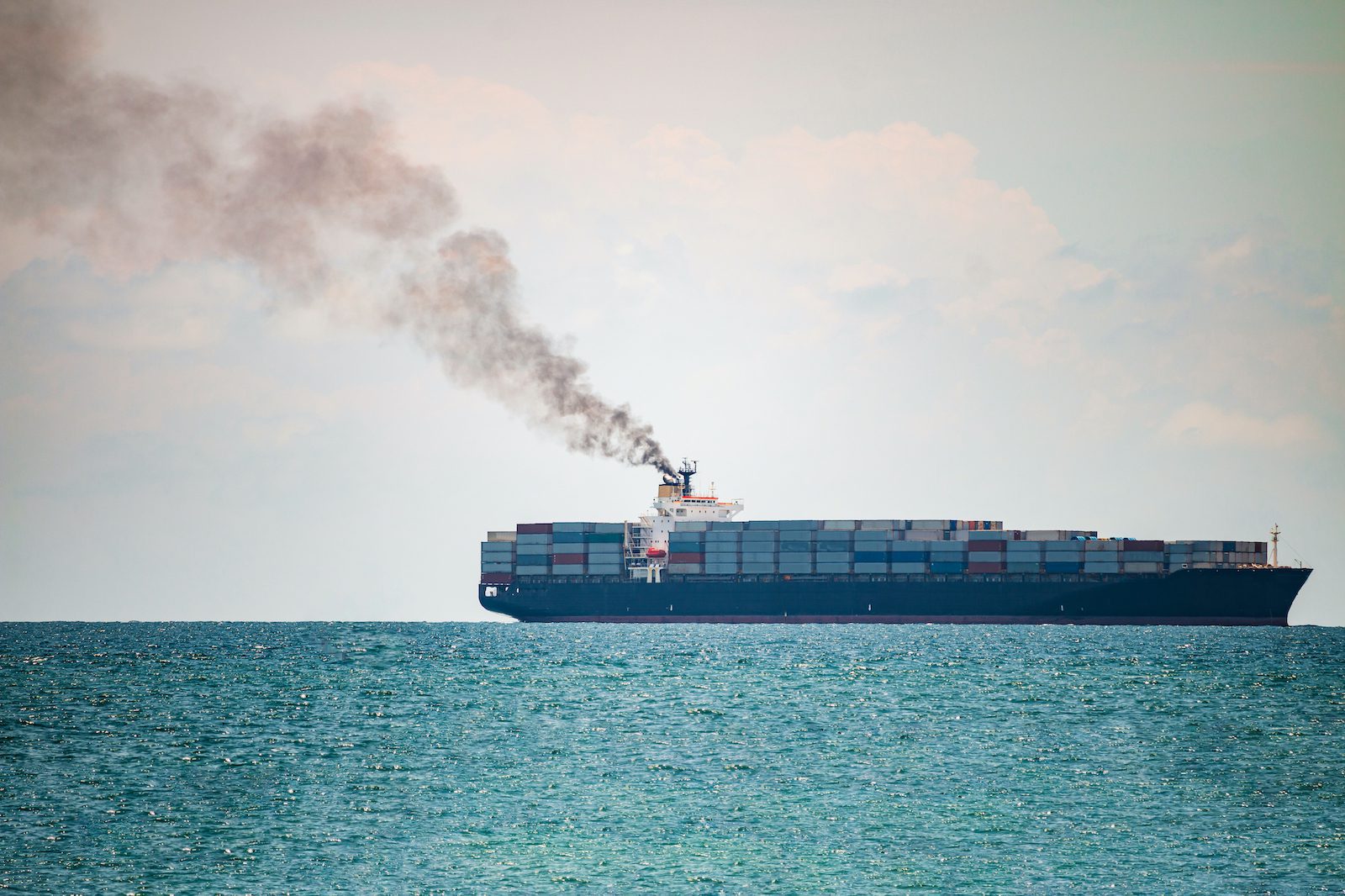Map shows all the piracy and armed robbery incidents reported to the IMB Piracy Reporting Centre during 2014. Click to view
 By Ole Mikkelsen
By Ole Mikkelsen
COPENHAGEN, Oct 7 (Reuters) – Piracy will increase in the Gulf of Guinea as Nigeria prepares for an election next February in order to funnel ransom money into campaign financing, intelligence experts told a shipping conference in Copenhagen on Tuesday.
Risk Intelligence, which advises private shipping companies and governments on security, said two “mother ships” belonging to pirates are currently located just south of Nigeria and five seafarers are know to be held hostage onshore.
“Ahead of general elections, kidnap-for-ransom and attacks on offshore targets increase,” Managing Director Hans Tino Hansen told Reuters at a special session on maritime crime and the effects on growth and development in Africa.
“The ‘principal’ (protection money) system in Nigeria secures funding to political candidates, and because of that, we see an increase in offshore attacks,” he said.
General elections are expected to take place also in Togo, Burkina Faso and the Ivory Coast, all close to the Gulf of Guinea, but these do not constitute the same risk, the experts said.
“The crisis in the Gulf of Guinea is all about Nigeria,” Alex Vines from Chatham House, the Royal Institute of International affairs, told the session.
The Danish Shipowners Association, representing companies that account for 10 percent of global trade by value, estimates global costs related to piracy at $28 billion a year due to lower trade volumes and the direct cost to companies and governments at $7 billion and $12 billion a year.
Denmark’s A.P. Moller-Maersk, the world’s largest container shipping company, was one of the victims when the Maersk Alabama was attacked by Somali pirates in 2009, an incident made famous by the Hollywood movie “Captain Phillips”.
The number of attacks by Somali pirates in the Gulf of Aden has dropped sharply from 2013, largely because of an international naval effort. As a result many shipping companies have cut spending on their security.
“We have seen some shipping companies reduce numbers of guards on merchant vessels from four to two when passing through the Indian Ocean,” Hansen said, expecting some to take guards off vessels entirely in the near future, which could then increase the risk of a resurgence in piracy.
A total of 6,752 incidents of piracy and armed robbery against ships, including attempted attacks, were reported from 1984 to the end of December 2013.
Apart from the seas east and west of Africa, pirates mainly operate in the Malacca Strait between Malaysia and Indonesia and in the South China Sea. (editing by Jane Baird)
© 2014 Thomson Reuters. All rights reserved.

 Join The Club
Join The Club











